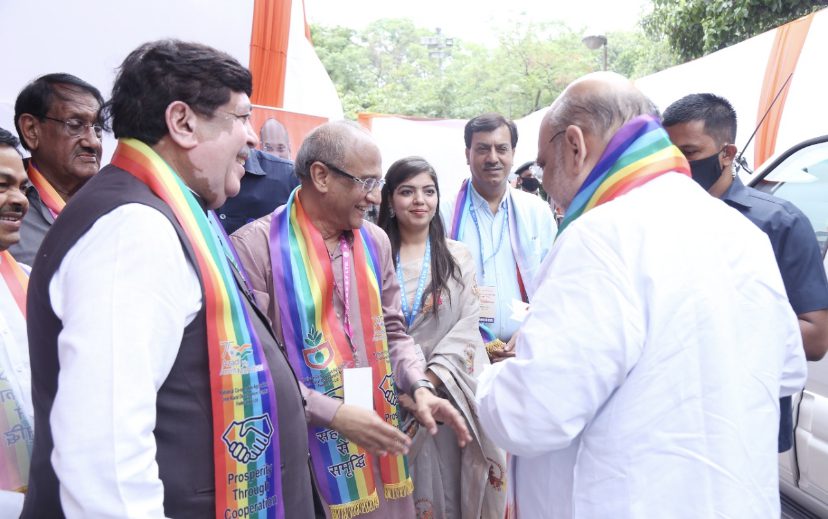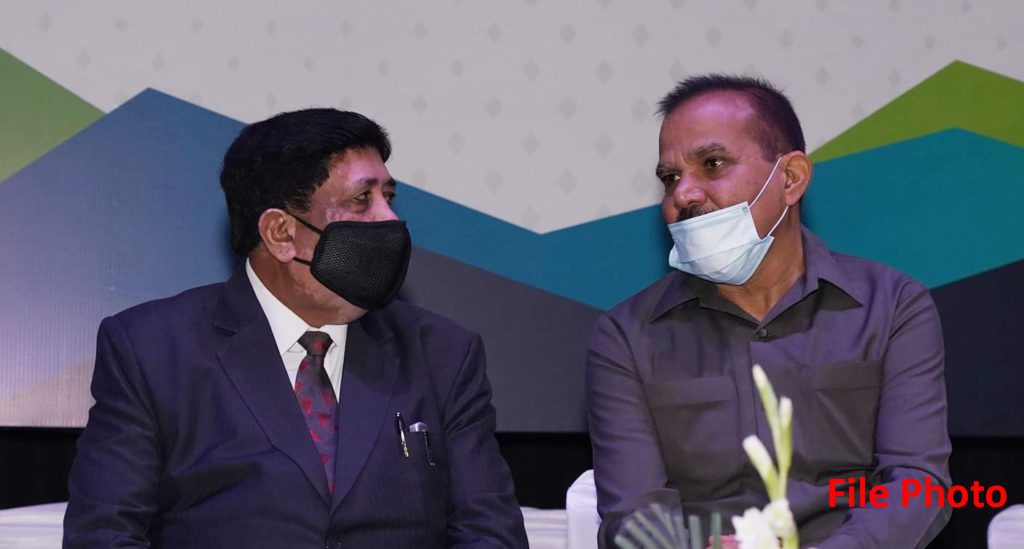The apex body of co-operatives in the country NCUI held a meeting of co-operators drawn from various cooperative federations to discuss the latest amendments being proposed by the Ministry in the MSCS Act. As reported earlier in these columns, the MSCS Act 2022 is likely to be implemented this very year.
Presided by NCUI President Dileep Sanghani, the hybrid meeting brainstormed about various aspects of the proposed bill. Sanghani was accompanied by ICA AP President Dr Chandra Pal Singh Yadav and Nafed Chairman Bijender Singh, among others.
Later, on Saturday, during Union Minister Amit Shah’s visit to NCUI, leaders raised the issue before the Minister and sought time from him to convey the co-op sector’s suggestions and feedback gathered through the hybrid meeting.
Talking to Indian Cooperative, Dileep Sanghani said that as he (Sanghani) had pressing meetings in Gujarat, the onus of meeting Ministry officials was left on the shoulders of Chandra Pal Singh and Bijender Singh. NCUI CE Dr Sudhir Mahajan and Ved Prakash Setia also accompanied the leaders.
Dr Chandra Pal Singh confirmed to Indian Cooperative that a meeting indeed took place with the Cooperative Secretary Gynaesh Kumar and a final meeting on the issue will take place with Union Minister Amit Shah. Chandra Pal is camping in Delhi to meet Shah as several of the issues proposed in the Bill can be resolved only at the level of the Minister, sources confide.

The issue of face value vs book value is bogging the co-op sector the most. Cooperators are of the opinion that shares should be returned only on face value. Both at entry and exit what should be in vogue is face value, they argue. “If we have to give book value, cooperatives may collapse if the majority of the people decide to exit or some unscrupulous elements try to disestablish a successful co-op”, they underlined.
The Custody of Education Fund is another issue, co-operators are concerned with. The new bill proposes its custody by the govt while cooperators feel that the autonomy of NCUI would be severely checked if it does not have control over the fund. “Our primary aim is to educate and train co-operators across the nation and a free-hand in the matter will go a long way in ensuring quality training, ” they argue.
The cooperative sector also feels that a uniform service rule for co-op employees is not feasible as co-ops vary both in size and scope. MD of a big co-operative organization cannot be paid the way a middle or small level co-op MD is paid.
Indian Cooperative will soon come out with the full text-both the draft amendments as proposed by the Ministry as well as the sector’s response to them.
